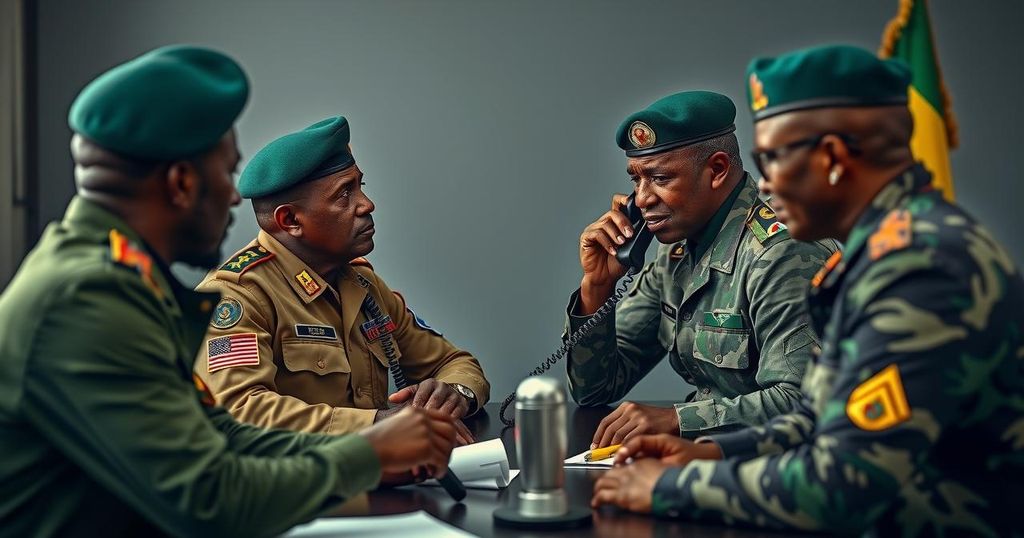The armies of Uganda and Rwanda are now swiftly addressing cross-border security issues through phone calls and direct meetings, as disclosed during the Proximity Commanders meeting in Musanze. This collaboration enhances military coordination and fosters bilateral relations that were previously strained by accusations of espionage. Efforts to deter illicit activities and promote awareness among border communities were also highlighted during the meeting.
The armed forces of Uganda and Rwanda are effectively mitigating cross-border security challenges through direct communication, including phone calls and face-to-face meetings among field commanders. This collaborative effort was highlighted during the recent third Proximity Commanders meeting held in Musanze, Northern Rwanda. Maj Gen Vincent Nyakarundi, Chief of Staff of the Rwanda Defense Forces (RDF), stated that the efficiency of these interactions has significantly improved the resolution of border issues compared to the previous lengthy procedures involving government embassies or high-ranking officials.
In his remarks, Lt Gen Kayanja Muhanga, Commander of the Uganda People’s Defence Force (UPDF) Land Forces, noted the favorable impact of the meetings on enhancing bilateral relations. He affirmed that such engagements have fostered improved coordination and cooperation between the military forces of both nations, allowing for quicker resolutions of conflicts and issues. This development is perceived as a pivotal step in reinforcing the ties between Uganda and Rwanda.
The relationships between the two neighboring nations had previously been strained due to counter-accusations of espionage and economic sabotage. However, the commitment of CDF Gen Muhoozi Kainerugaba to engage with President Paul Kagame in Rwanda served as a critical catalyst for restoring and fortifying these bilateral ties. The assembly in Musanze concluded with an agreement to deploy strategies aimed at deterring negative activities that adversely affect border communities.
The meeting also placed significant emphasis on bolstering awareness and sensitization efforts among border communities to combat illicit activities such as drug trafficking and human exploitation. Additionally, participants were afforded the opportunity to visit key historical sites, which included the Kigali Genocide Memorial and the Campaign Against Genocide Museum, thereby providing a deeper understanding of the tragic events of the 1994 Genocide against the Tutsi and the subsequent endeavors by the Rwanda Patriotic Army (RPA) to cease the genocide and rehabilitate the nation.
The interactions between the Ugandan and Rwandan armies signify a notable shift towards direct communication and cooperation in addressing cross-border security concerns. Historically, diplomatic tensions arose from serious accusations between the two countries, which hindered collaborative efforts. The third Proximity Commanders meeting serves as a landmark event indicating a renewed commitment to enhancing military cooperation and improving the welfare of communities living along the border. This approach not only promotes peace but also helps to deter illicit activities that exploit weaknesses in cross-border governance.
The ongoing collaboration between the Ugandan and Rwandan armed forces exemplifies a proactive approach to enhancing cross-border security and restoring bilateral relations. The strategic communication framework established between the field commanders allows for timely resolutions of disputes and fosters ongoing cooperation for the mutual benefit of both nations. Enhanced awareness initiatives aimed at local communities also play a crucial role in combating illicit activities, promising a more secure future at the borders. In summary, the recent military engagements reflect significant strides towards diplomatic stability and improved regional relations.
Original Source: chimpreports.com







